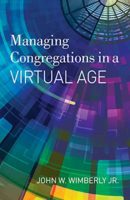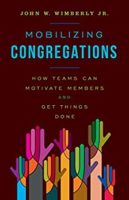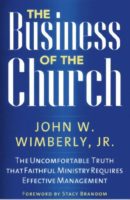How is remote work changing us, and which of the changes will remain once the pandemic is over? What problems are arising as staff work from home, and what advantages are turning up? What does this all tell us about the future of work in congregations? I am working on an Augsburg Fortress book about working remotely, and I want to share some of my early findings with you.
Most congregations have their staff working from home. Either the local government has formally closed their buildings or congregational leadership has. There are exceptions. Conducting interviews for a new book I am writing on managing congregations virtually, I have spoken with a number of clergy who live in jurisdictions where the staff is permitted to work in the building, if safely distanced from each other. In these situations, I am hearing that a few staff choose to go into the church but most work remotely from home. I call this a hybrid staff—partially working onsite, partially working remotely.
Keeping good communication
Whether staffs are hybrid or totally remote workers, the biggest problem appears to be maintaining good communications among the staff and congregational leaders. Communications can be difficult even when everyone is in the same building. Make the entire or part of the team remote, and communication problems are amplified.
Most congregation staffs have moved to Zoom meetings rather easily. However, as staff members communicate with each other from remote locations, people are learning the importance of casual conversations in the parking lot, around the coffee pot, or just passing in a hallway. The lack of informal communications results in a lot of small things not getting done. Big communication problems get discussed in a Zoom staff meeting. But A lot of communication around details details—the small stuff at the heart of efficient ministry—happens when a pastor says something in passing to an administrative assistant, a janitor, or a music director. Interviewees have told me, “Some things seem too small to require an email or text. I don’t want to bother the person.” But when a detail falls through the cracks, the need for that email or text is suddenly clear.
Zoom fatigue
Everyone, it seems, is currently complaining about Zoom fatigue—in congregations, business, government. It is physically exhausting to sit in front of a monitor all day. It is hard on the eyes and back.
In addition, the number of meetings has increased. What I am hearing from others and experiencing myself is not just that the number of Zoom meetings has risen greatly , but that the overall number of meetings—now all on Zoom or phone—has risen in comparison to the pre-pandemic number of meetings, most of which were face-to-face.. Why? We apparently assume that everyone is available 24/7 because they are not in the office. One clergy said she used to try and have most of her staff-related meetings a few mornings a week. Now, she says, they are taking place all day long five days a week.
One clergy said, “It is not only the number of meetings, but everything is now a meeting.” As an example, he used to go to the home of someone whose spouse died. They had an intimate conversation about one of the most important moments in a person’s life. Now, he says, “It is a #$%* Zoom call!”
What next?
What happens when the pandemic is over? Yes, it will be over! In my opinion and that of many others thinking about this issue, we will enter the hybrid world in which some people work onsite and some remotely, but most work a combination of both. There are people, such as those who are going into their workplaces today, who like getting out of their homes. I read an interesting article about people who actually like their commutes. They use their commute to get themselves mentally prepared for work each morning and then to downshift on the way home .
At the same time, many others have experienced the advantages of working remotely. For them, a commute is not a time to shift mental gears, it is a time of dealing with road rage and traffic delays. They like not having to deal with that stuff. They like being around their family more. They like being able more flexibility in their work schedule rather than boxed into fixed working hours.
When I proposed writing a book on this topic to my publisher, I did not appreciate the richness that would unfold in my research. The move from onsite to remote work is opening a Pandora’s box of opportunities and challenges for organizations and employees. Everything from how we evaluate performance to how we pay people will be affected. Think of denominational offices. Why do their staff members need to live in one city? Will the option to live anywhere one wants create a different profile of those who choose to apply for these jobs?
I look forward to sharing more of my findings in the months ahead. In the meantime, if you are interested in sharing your staff’s experiences or offering ideas, feel free to email me. We’ll set up a Zoom call!
John Wimberly is an experienced pastor and consultant. As a consultant, he has worked with congregations and judicatories on strategic planning, staff designs for the 21st century, and congregational growth as well as financial and administrative management. He has MBA, MDiv, and PhD (theology) degrees. His books focus on effective management and leadership. John believes congregations can have a bright future!




